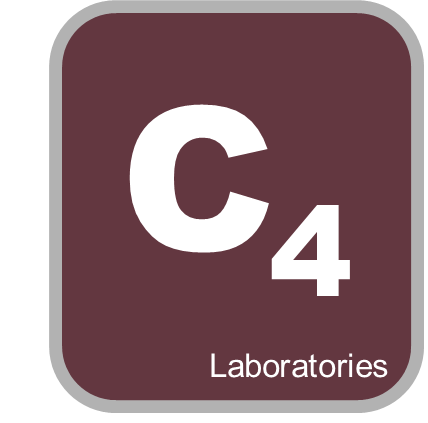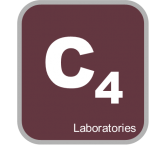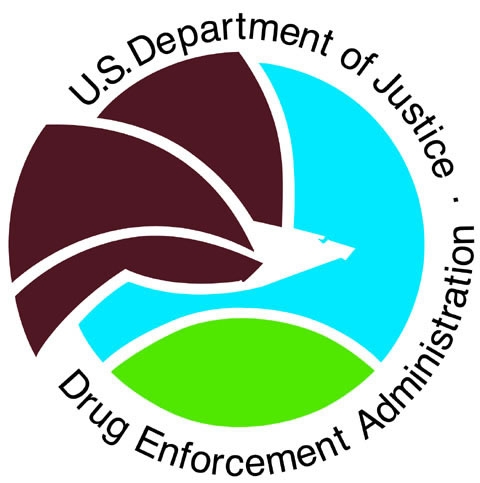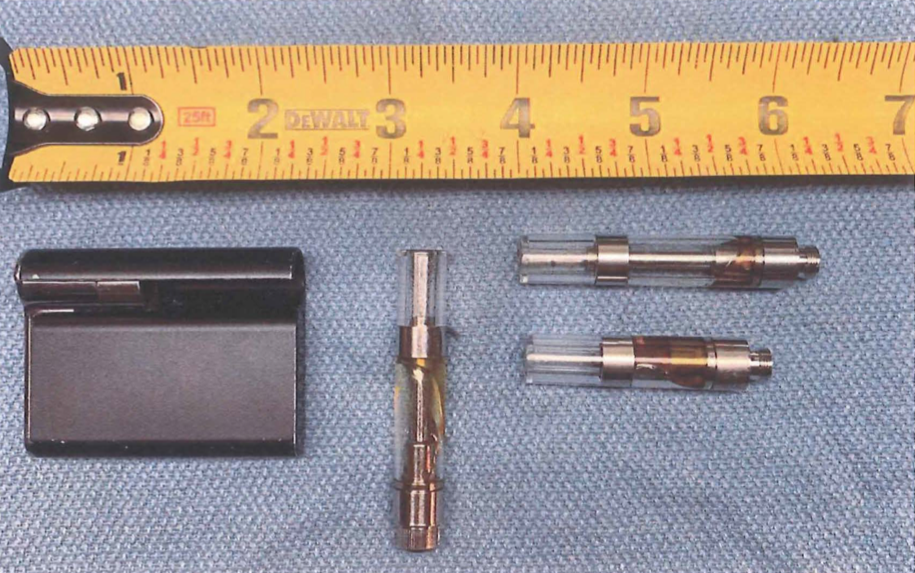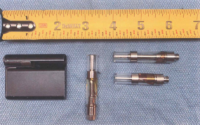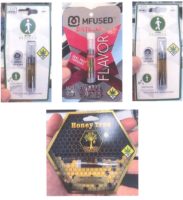Communicating with consumers through the telephone—either by text messages or by calls—is a great way to engage with them. Indeed, a recent analysis of text messaging trends reveals that most consumers check their cell phones more than 20 times a day, with almost 20% saying they check it more than 50 times.1 Text messages have a nearly five-times higher open rate than email, and the average consumer has 96 unread emails in his inbox compared to about one unread text message at any given time.2 In short, used properly, text messaging is an effective medium to reach consumers. And cannabis companies have embraced texting with open arms, especially given that other forms of advertising currently are off limits to the industry.
But with the utility of text messaging consumers comes substantial risk. Cannabis companies are frequent targets of private litigation arising out of their texting practices. Over the past two years, dozens of class action lawsuits alleging unlawful text messages have been filed against cannabis companies, including well-known multistate operators and less recognizable ones. Most of these cases are ongoing and may rightfully be considered “bet the company” litigations. For example, a pending case against cannabis delivery company Eaze Solutions, Inc. alleges that unsolicited text messages were sent to 52,104 individuals.3 Assuming each putative class member received just one text from Eaze, the statutory damages exposure ranges between $26 million and $78 million. The court twice has rejected proposed class settlements of $1.75 million and, later, $3.5 million as being too low. Given the potential exposure, before cannabis companies click the send button on a text message, they need to ensure that they’re abiding by the law.
At the federal level, the Telephone Consumer Protection Act (TCPA) regulates all types of text messages, telemarketing and transactional/informational alike. Generally speaking, the TCPA governs how text messages are sent (i.e., manually versus automatically dialed), and how calls are conducted and voicemail messages delivered (live representative versus “artificial or prerecorded voice”).4 The TCPA also contains do not call rules applicable to marketing messages. The TCPA is enforced by the Federal Communications Commission (FCC) and, notably, through private lawsuits, including class actions. Under the TCPA, a private plaintiff can seek statutory damages of $500 for each unsolicited autodialed text message (or unsolicited call that utilizes an artificial or prerecorded voice or delivers a prerecorded message). If a solicitation text is sent to a telephone number registered on the National Do Not Call Registry or the cannabis seller’s own internal do not call list, the statutory damages are “up to” $500 per call or text. In all cases, statutory damages may be trebled to $1,500 if the TCPA violation was committed either knowingly or willfully.
These rules fit atop myriad state telemarketing and do-not-call laws, which may be more restrictive than the TCPA.
While I could fill up this entire website with the various calling and texting issues with which sellers generally struggle under the TCPA—such as the use of artificial or prerecorded voices and prerecorded messages, how to handle reassigned numbers, revocation of consent issues, etc.—this article focuses on the basic rules governing how cannabis companies can text consumers, and what types of consent they need to do so under the Act.
Overview of TCPA’s Consent Rules
Under the TCPA, a seller is required to have a consumer’s “prior express consent” in order to send an autodialed non-marketing text message to a cell phone; The consent rule for autodialed marketing text messages to cell phones are different in that they require “prior express written consent” (EWC). No consent is needed in order to manually send a text message (and note that “manually” does not necessarily mean that an individual must dial all ten digits and click send from a standard smartphone).
“Prior express consent” is a lower level form of consent and generally exists where a consumer voluntarily has provided her telephone number to the seller.
“Prior express written consent,” on the other hand, is a heightened consent standard requiring a written agreement bearing (1) the signature of the person called (either traditional “wet” signature or an electronic/digital one) that clearly authorizes the seller to deliver or cause to be delivered to the consumer telemarketing messages; and (2) the telephone number to which the signatory authorizes such telemarketing messages to be delivered. If the seller utilizes an autodialer to send a marketing text message to a cell phone, then the written agreement with the consumer must also clearly and conspicuously disclose both that (a) the text may be sent using an autodialer, and (b) the consumer is not required to provide his consent as a condition of purchasing any goods or services. This EWC to be contacted must have been provided by the consumer before the text is sent. Unlike the lower standard for prior express consent, the mere provision of a cell phone number to the seller does not constitute the required EWC to be contacted at that number via an autodialer marketing purposes.
Confusing enough? Don’t worry, a table summarizing the current TCPA consent rules is below: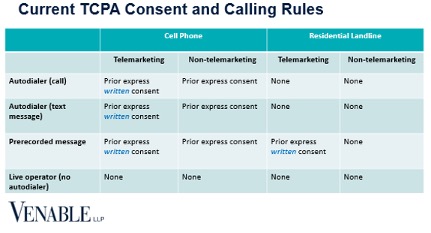
What Type of Text Are You Sending?
Generally, the type of consumer consent that is needed to send a text message is a function of the type of text and how it is being sent. “Telephone solicitations” are subject to more restrictions than purely informational or transactional text messages. The TCPA defines “telephone solicitation” to be “the initiation of a [text] message for the purpose of encouraging the purchase or rental of, or investment in, property, goods, or services.”
On the other end of the spectrum lie pure informational or transactional text messages. These are communications designed to provide information, rather than promote products and services (in the case of informational calls), and to “facilitate, complete, or confirm a commercial transaction that the recipient has previously agreed to enter into” (in the case of transactional calls). For example, customer satisfaction survey texts and texts to confirm orders and deliveries are informational and transactional, respectively.
Finally, the TCPA also covers a third category of text messages—“dual purpose” texts. These are texts with either a customer service or informational component as well as a marketing one. Because courts and the FCC take an expansive view of what constitutes telemarketing, dual purpose texts are treated as pure marketing messages and subject to the more rigorous standards to obtain the requisite level of consumer consent.
Common examples of texts that cannabis companies send and the corresponding level of consent needed are as follows:
- Autodialed Text Messages: Under the TCPA, an autodialer is defined to be equipment, which has the capacity to store or produce telephone numbers to be called using a random or sequential number generator, and to dial such numbers without a requisite level of human involvement. However, there currently is a “significant fog of uncertainty” as to what is and is not an autodialer, with different courts reaching conflicting decisions as to, for example, whether simply dialing from a curated list of targeted telephone numbers constitutes autodialing, or whether the numbers on that list must have been randomly or sequentially generated in order for a platform to constitute an autodialer.
- While proceedings are ongoing at the FCC to clarify the autodialer definition, the Supreme Court recently agreed to decide the autodialer issue during its next term in a TCPA case filed against Facebook; a decision is expected by May or June 2021. Notably, in mid-September 2020, the Department of Justice filed a “friend of the court” brief taking the industry-favorable position that a platform itself must randomly or sequentially generate the telephone numbers that it texts to be considered an autodialer under the statute.
- Texts sent by autodialer (whether the autodialing functionality is actually used to send the text or not) require consent from the recipient. Note that this rule generally applies to both individual and business cell phone numbers. As long as the text is not a solicitation message, then consent may be obtained orally. Alternatively, if a consumer provides his cellular telephone number to you via an online lead form or during the checkout process, then this should be sufficient to constitute “prior express consent” to receive autodialed non-solicitation texts, such as order confirmations or delivery updates. The key to obtaining prior express consent, however, is that the consumer provide you with his telephone number voluntarily.
- However, EWC is required to send a text for marketing purposes using an autodialer. The EWC requirements are described above and examples of EWC are below.
- Note that, under the TCPA, the seller has the burden of demonstrating that it had the requisite level of consent to send the text in question. Thus, cannabis companies should maintain records evidencing such consent. A good rule of thumb is to maintain such records for a period of five years from the date of text, which covers the TCPA’s statute of limitations and the limitations periods under most state telemarketing laws.
- Manually-Dialed Text Messages: If a cannabis company manually sends text messages—e., using a device that does not have the capacity to autodial—then no special consent is needed. However, even for manually-dialed texts, applicable do not call lists must be checked.
- Texts to Numbers on Do Not Call Lists: The TCPA also prohibits companies from sending marketing texts to consumers whose telephone numbers are registered on either the National Do Not Call Registry or the seller’s own internal do not call list, unless an exemption applies, such as calls with the consumer’s EWC or to consumers with whom the seller has an “established business relationship.”5 The TCPA’s do not call rules are agnostic to how a telephone number is dialed, whether it be manually or by automated means. Be sure to scrub against relevant do not call lists.
Best Practices for Obtaining Proper Consent
As noted above, for autodialed non-marketing text messages to cell phones, the lower level of simple “prior express consent” is required. Prior express consent is deemed to exist by virtue of a consumer having provided his telephone number to a cannabis company, either orally or in writing.
EWC for autodialed solicitation text messages, however, requires more. First, specific disclosures must be made “clearly and conspicuously” to the consumer. Specifically, a consumer should be advised and agree that, by providing his telephone number to the cannabis company, he is agreeing (1) to receive potentially autodialed (2) marketing text messages, and (3) that he is not required to provide his consent as a condition of making a purchase. This disclosure should not be placed beneath a submission button on a lead form or checkout page (unless an unchecked check box is utilized to demonstrate that the consumer has reviewed and accepted the disclosure); it needs to be unavoidable. The disclosure should be presented in readable, crisp font, both in size and in color, that contrasts against its background. For example, the following disclosures likely would pass muster to demonstrate EWC:

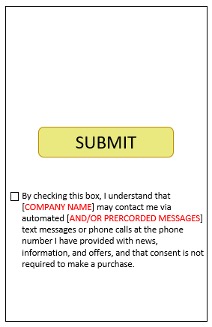
As you may now appreciate, the TCPA is a minefield (and this article just scratches the surface). However, with planning and a good compliance program, the law can be navigated to minimize risk while, at the same time, allowing for communications with cannabis consumers. Remember, an ounce of compliance now can lead to a pound of litigation prevention later.
Disclaimer: Using, distributing, possessing, and/or selling marijuana is illegal under existing federal law. Compliance with state law does not guarantee or constitute compliance with federal law. This informational overview is not intended to provide any legal advice or any guidance or assistance in violating federal law.
References
- Zipwhip, 2020 State of Texting, at 4 (2020).
- Id. at 11.
- See Lloyd v. Eaze Solutions, Inc., No. 3:18-cv-05176 (N.D. Cal.).
- Although the TCPA utilizes the term “calls,” courts have found the statute applies with the same force to text messages. This article focuses on text messaging but most of the principles extend to calls as well.
- There are two types of “established business relationships” (EBRs) under the TCPA: (1) inquiry EBRs and (2) transactional EBRs. Pursuant to a transactional EBR, a seller may text a consumer whose telephone number is listed on the National Do Not Call Registry for up to 18 months after the consumer’s last purchase, delivery, or payment—i.e., from the date of the seller’s last transaction with the former customer—unless the consumer asks the seller to stop calling him. In that case, the seller must honor the do not call request by placing the consumer’s telephone number on its own internal do not call list. Under an inquiry EBR, the seller may text a consumer who has inquired about its products or services, but only for up to three months. Again, if the consumer asks the seller to stop calling within that three-month timeframe, it must honor the request and add the consumer’s telephone number to its internal do not call list. Telephone numbers on the seller’s internal do not call list should remain on that list indefinitely or until the consumer subsequently provides her prior express written consent (or explicitly asks to be removed from the internal do not call list); a new EBR will not override an internal do not call request. Indeed, as to the latter, the Federal Trade Commission and several state attorneys general made this point clear in their briefing in a recent TCPA and Telemarketing Sales Rule litigation then-pending in Illinois federal court; the practical reason for the rule is that a consumer may wish to do business with a seller yet not receive telemarketing calls.
 CannaSafe was allegedly the first to break the news about vaping health issues caused by EVALI, the lung condition responsible for the 2019 vape crisis. According to the press release, they provided testing data that proved black market vapes contained dangerous chemicals, likely including vitamin E acetate, the chemical that the CDC says is linked to EVALI.
CannaSafe was allegedly the first to break the news about vaping health issues caused by EVALI, the lung condition responsible for the 2019 vape crisis. According to the press release, they provided testing data that proved black market vapes contained dangerous chemicals, likely including vitamin E acetate, the chemical that the CDC says is linked to EVALI.








